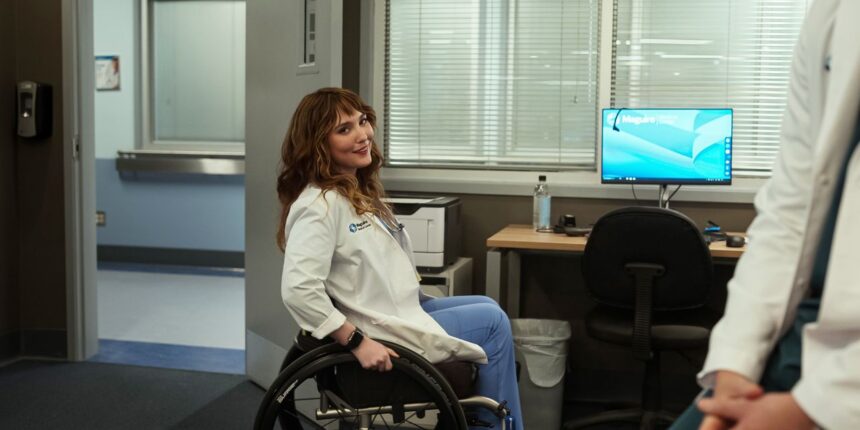Why do you think the industry, in general, is so unfriendly to people with disabilities?
I think that people assume it’s going to be a lot harder than it is. There aren’t a lot of trained disabled actors, so I think that they expect maybe a different quality of work, or they expect that they’ll have to train them on set. And while that is true—I was learning and my work has grown significantly from the start of the season to the end of the season—that is the case for any new actor that you hire.
Fear is probably the biggest barrier. I get seen for way fewer roles because you need a willing creative team. But I also think that people are just scared that they’re going to mess it up and they don’t want to offend anybody, and they don’t want to step on any toes. And so they would rather preserve their image rather than hire somebody and realize all the things they didn’t know about that community and be open to having difficult conversations.
But there is the talent there; the disability community has actors that can do the job, but there’s an assumption that we don’t exist because for so long, the training programs kind of were the gatekeepers. Part of the issue, too, is that disabled people don’t think that there are roles for them, and so we self-select out and don’t pursue it or apply to drama school in the first place.
Which, I’d imagine, is part of why it’s so important for there to be representation of people with physical disabilities on television shows and in movies.
From an employment standpoint, representation shows what this community is capable of, both in the film and TV industry, but then also outside of the industry. People make a lot of their choices based on what they’ve seen reflected in the media. And if you’ve never seen a person in the workplace with a disability before, you’ll just assume that we don’t exist or we can’t exist.
As a kid, you’re told not to look or stare if someone is disabled, but something that is different from the norm is inherently compelling. I’m watching this with the response to Pulse right now where people are incredibly interested in my character’s storyline, but they also have a lot of questions. How do we address those questions if we don’t see disability on screen? By pretending that we can’t look at a community, we can’t stare, we can’t ask questions when we’re kids, and then we don’t see them reflected in the media, how do we ever normalize an entire group of people? Somewhere around 29% of adults in the US have a disability, whether that be visible or not, and that’s a huge swath of our population that we are just pretending doesn’t exist. And because it’s taboo to actually look at it and ask questions—how does this person go about their life? How are they a doctor? How do they make accommodations in the workplace?—we bury our heads in the sand and pretend it’s not there, which just erases a whole community.
Also, seeing disability on screen is incredibly interesting. It’s incredibly theatrical and it’s incredibly compelling. There are a lot of conflicts and storylines that come up just by nature of putting a disabled person in a role. You give a character so much more depth and nuance because suddenly there are new suitcases full of baggage and new relationship dynamics, because even just the physical dynamic of somebody sitting and somebody standing is a power dynamic that shifts how you see things on screen. So it’s just really watchable and really interesting. Pretending that disability isn’t there means we’re losing out on really interesting stories.
—for free.
Read the full article here



